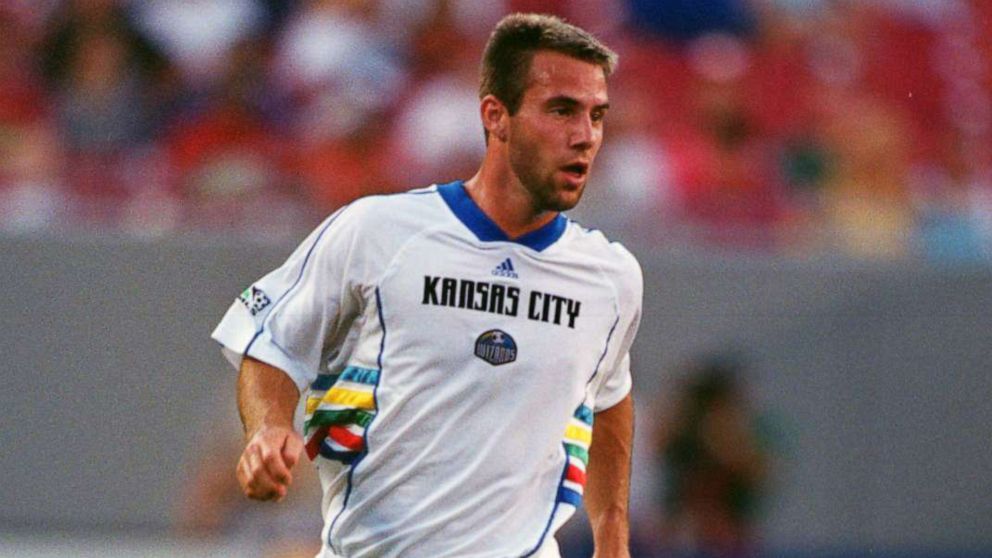


The family of late Major League Soccer player Scott Vermillion is speaking out and trying to raise awareness after he became the league's first known case of chronic traumatic encephalopathy, or CTE.
The diagnosis came nearly two years after his death after his brain was analyzed by doctors at Boston University's CTE Center. Doctors found evidence of the degenerative brain disease that's linked to memory loss, depression and aggressive or impulsive behavior.
The New York Times first reported the diagnosis earlier this week.
The slow, progressive degenerative condition is believed to be associated with concussions or sub-concussive blows to the head.
"You can get concussions in soccer, but it's not the major problem that we find that leads to CTE. It's really these little hits, what we call the sub-concussive hits ... over time can also cause damage to the brain," Dr. Ann McKee, director of Boston University CTE Center, told ABC News.
Vermillion, who played four seasons in MLS from 1998 to 2001, died on Christmas Day in 2020 at 44 years old of alcohol and prescription drug poisoning, according to his family.
"You heard about it, but around soccer there was no talk of the CTE. There was nothing -- so we had no idea," Scott’s father Dave Vermillion told "GMA." "We actually were able to find out what was going on and then the guilt set in because we would all handle it differently if we knew it was CTE."
In the decade after he was sidelined by injury, Vermillion's dad said his son retreated from loved ones and isolated himself, abusing alcohol, until that devastating call that he had overdosed and died.
"If we can help anybody -- one person, two, however many people, we can help ... then to us, that makes our tragedy something worth the loss of our son and dad," Vermillion said.
The disease has been identified in players from a multitude of contact sports, including ice hockey, boxing and especially football, where CTE has been diagnosed in the brains of over 300 NFL players.
"Scott, who played for 22 years, probably had substantial numbers of these sub-concussive blows. And as he ages, the disease gets worse and he starts to develop more and more symptoms, [and] they become more and more disabling," McKee explained.
MLS told ABC News in a statement: "Major League Soccer’s highest priority is protecting the health and safety of our players," Chief Medical Officer Margot Putukian said. "Although head injuries, including concussions, are a risk in all sports, including soccer, MLS has comprehensive policies to educate players, coaches, officials and medical staffs about the importance of head injury identification, early reporting, and treatment. MLS is a leader in the sport, advocating for and piloting the FIFA concussion substitute program, implementing a medical spotter program to identify potential head injuries, and removing from play any player with a suspected head injury for assessment and, as necessary, treatment. MLS and its medical advisors continually align our protocols with the most up-to-date science as our medical staffs provide players with exceptional care on and off the field. There is always more progress to be made, and MLS is staunchly committed to this important work."